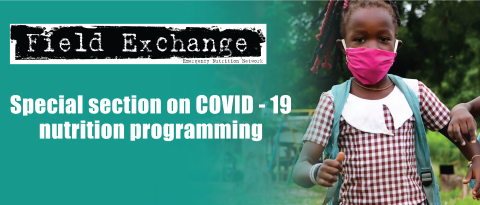Sustainability evaluation of a national infant and young child feeding programme in Bangladesh and Vietnam
Research Snapshot1
Numerous infant and young child (IYCF) interventions have struggled to show impact at-scale. A notable exception is the Alive & Thrive initiative (A&T) implemented in Bangladesh, Ethiopia and Vietnam between 2009 and 2014. The A&T programme aimed to achieve at-scale child nutrition and health improvements via contextualised activities including nutrition counselling, policy change, social mobilisation and mass media campaigns with studies showing that IYCF behaviours and outcomes improved as a result. This study aimed to explore the sustainability of activities implemented during the A&T programme in Bangladesh and Vietnam, two years after the end of external programme funding.
The study design included quantitative data (surveys completed by 668 health workers and 269 service observations) collected from January to May 2017 and comparative data analysis from areas that received all A&T programme activities and those that received no A&T-related activities. Interviews and focus group discussions were held with 218 stakeholders (policymakers, experts, non-governmental organisations and donor representatives and health partners) to explore their impressions of A&T programme sustainability.
In both countries, some A&T activities were continued via institutionalisation following project closure, particularly IYCF counselling. However, declines in mass media campaigns, policy and advocacy activities and social mobilisation activities were noted. Certain core A&T activities, such as monitoring and evaluation and IYCF training, were reduced in both countries in frequency, quality and coverage. Time and budget constraints were cited as barriers to implementing these core A&T activities.
When exploring health worker capacity across intervention and comparison areas, it was found that IYCF knowledge scores remained significantly higher among health workers in intervention areas compared to those in comparison settings (on average 11% and 14% higher respectively). However, this did not translate into better quality of counselling as determined by the proportion of recommended activities performed. Health workers in intervention areas in Bangladesh reported significantly higher job satisfaction (86%) and self-efficacy (93%) than those in comparison areas (83% and 85% respectively). No significant differences were noted in Vietnam. Stakeholders highlighted the importance of government leadership for sustainability and the need for future programmes to plan for institutionalisation from the beginning of implementation.
1Moucheraud, C, Sarma, H, Ha, T T T et al. (2020) Can complex programs be sustained? A mixed methods sustainability evaluation of a national infant and young child feeding program in Bangladesh and Vietnam. BMC Public Health 20, 1361 (2020). https://doi.org/10.1186/s12889-020-09438-2


